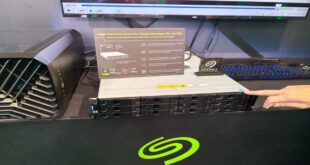Welcome, Megicula Reader, to our comprehensive guide on tire maintenance tips! As someone who is familiar with the importance of maintaining your tires, you understand the value of keeping them in top condition. In this article, we’ll provide you with valuable insights and expert advice to ensure your tires last longer, perform better, and keep you safe on the road.
Regular tire maintenance is essential for several reasons. First and foremost, properly maintained tires improve your vehicle’s overall performance, including better fuel efficiency and increased stability. Second, they enhance your safety by improving grip and reducing the risk of blowouts or hydroplaning. Finally, well-maintained tires last longer, saving you money in the long run.
The Importance of Tire Pressure and Tread Depth
Optimal Tire Pressure for a Smooth Ride
One of the most critical aspects of tire maintenance is maintaining proper tire pressure. Underinflated or overinflated tires can negatively impact your vehicle’s performance and safety. To determine the ideal tire pressure for your vehicle, refer to the manufacturer’s recommendations, usually found in the owner’s manual or on the driver’s side door jamb. Remember to check the pressure when the tires are cold, as heat can cause pressure fluctuations.
Regularly check your tire pressure using a quality pressure gauge or at a nearby gas station. If the pressure is too low, use an air compressor to inflate the tires to the recommended level. Conversely, if the pressure is too high, carefully release air until it reaches the correct pressure. Maintaining optimal tire pressure ensures even wear, better fuel efficiency, and improved handling.
Tread Depth: The Key to Traction
Another essential aspect of tire maintenance is monitoring tread depth. Adequate tread depth is crucial for maintaining traction, especially on wet or slippery surfaces. To check the tread depth, use the “penny test.” Insert a penny upside down into the tire’s tread grooves. If you can see Lincoln’s head completely, it’s time to replace your tires.
Uneven tread wear is a sign of improper wheel alignment, suspension issues, or other mechanical problems. Regularly inspect your tires for any signs of wear, such as bald spots, bulges, or cuts. If you notice irregular wear patterns, consult a professional for a thorough inspection and necessary repairs.
Rotation, Alignment, and Balancing: The Trio of Tire Care
Tire Rotation: Maximizing Longevity
To promote even tire wear and extend their lifespan, it’s crucial to rotate your tires regularly. Tire rotation involves moving the tires from one wheel position to another, ensuring each tire wears evenly. The ideal rotation pattern may vary based on your vehicle’s drivetrain, tire type, and the manufacturer’s recommendations. Refer to the owner’s manual or consult a professional for the appropriate rotation intervals and patterns for your specific vehicle.
Wheel Alignment: Ensuring Stability and Handling
Proper wheel alignment improves stability, handling, and overall tire performance. Misaligned wheels can cause uneven tire wear, reduced fuel efficiency, and compromised safety. Signs of misalignment include the vehicle pulling to one side, uneven steering wheel position when driving straight, or vibrations. If you notice any of these signs, schedule a wheel alignment with a trusted professional to rectify the issue.
Tire Balancing: Smoother Ride and Extended Lifespan
When your tires are not properly balanced, you may experience vibrations or uneven tire wear. Tire balancing involves adjusting the weights on the wheel to eliminate imbalances that can affect ride quality and durability. It’s recommended to balance your tires whenever they are mounted on a wheel, or if you notice any vibrations. Consult a professional tire service provider to ensure your tires are balanced correctly.
Tire Maintenance for Different Seasons
Summer Tire Maintenance
During summer, hot weather can cause your tire pressure to rise. Regularly check and adjust the tire pressure according to the manufacturer’s recommendations. Additionally, hot roads increase the chances of blowouts, so it’s crucial to inspect your tires for any signs of wear or damage regularly. Maintaining adequate tread depth is particularly important to ensure proper traction on dry or wet summer roads.
Winter Tire Maintenance
Winter weather brings unique challenges, such as snow, ice, and freezing temperatures, which require special attention to tire maintenance. Consider switching to winter tires for enhanced traction on icy or snowy roads. Winter tires are specifically designed with deeper treads and softer rubber compounds to provide better grip in cold conditions. Regularly check the tread depth and ensure proper tire pressure for optimal performance and safety.
All-Season Tire Maintenance
For those who prefer all-season tires, proper maintenance is still crucial for year-round performance. Regularly inspect the tire tread, check the tire pressure, and ensure they are properly aligned and balanced. All-season tires offer versatility, but it’s important to monitor their condition and adjust your driving style based on weather conditions.
Avoid Common Tire Maintenance Mistakes
While we’ve covered essential tire maintenance tips, it’s also important to know what to avoid. Here are some common mistakes to steer clear of:
- Ignoring tire rotations: Neglecting regular tire rotations can lead to uneven tire wear, reducing the lifespan of your tires.
- Overlooking tire balancing: Improperly balanced tires can cause vibrations, leading to discomfort and potentially affecting your vehicle’s suspension components.
- Neglecting wheel alignment: Misaligned wheels can cause uneven tire wear and compromised vehicle handling, impacting your safety on the road.
- Driving on worn-out tires: Delaying tire replacement poses serious safety risks. Always monitor your tread depth and replace tires when necessary.
- Ignoring tire pressure: Incorrect tire pressure affects vehicle performance, fuel efficiency, and tire longevity. Regularly check and maintain the recommended tire pressure.
Frequently Asked Questions (FAQ)
1. Can I rotate my tires myself?
While some people choose to rotate their tires themselves, it’s recommended to have tire rotations performed by professionals. They have the expertise and necessary equipment to ensure the tires are rotated correctly, promoting even wear.
2. What happens if I drive with underinflated tires?
Underinflated tires can result in increased rolling resistance, reduced fuel efficiency, premature tire wear, and decreased handling and braking performance. It’s essential to maintain proper tire pressure to avoid these issues.
3. How frequently should I get a wheel alignment?
The frequency of wheel alignments depends on various factors such as driving conditions and your vehicle’s suspension. As a general guideline, aim for a wheel alignment every 10,000 to 12,000 miles or as recommended by your vehicle’s manufacturer.
4. Should I replace all four tires at once?
Replacing all four tires simultaneously is generally recommended to maintain consistent traction and handling. However, if you only need to replace one or two tires, opt for tires with a similar tread pattern and specifications as your existing tires.
5. How can I identify tire wear patterns?
To identify tire wear patterns, visually inspect the tire tread regularly. Uneven wear can manifest as feathering, cupping, or one-sided wear. If you notice any irregularities, consult a tire professional for further examination.
6. Are nitrogen-filled tires better than air-filled tires?
While nitrogen-filled tires are less prone to pressure fluctuations due to temperature changes, the difference in performance compared to air-filled tires is minimal for everyday drivers. However, nitrogen is beneficial in certain applications like racing or extreme weather conditions.
7. Can I use winter tires all year round?
While using winter tires all year round is possible, it’s not recommended. Winter tires are designed with specific tread patterns and rubber compounds optimized for cold weather conditions. Their performance and longevity will be compromised in warmer temperatures.
8. How can I improve fuel efficiency with proper tire maintenance?
Maintaining optimal tire pressure, keeping your tires properly aligned, and ensuring adequate tread depth can all contribute to improved fuel efficiency. Underinflated tires, misaligned wheels, and bald tires can all increase rolling resistance, reducing fuel economy.
9. Can I repair a punctured tire myself?
While some punctures can be repaired using a tire repair kit, it’s recommended to have tire repairs performed by a professional. They can assess the severity of the puncture and determine if a repair is feasible or if tire replacement is necessary.
10. How often should I check my tire pressure?
Regularly check your tire pressure at least once a month or before embarking on long journeys. Additionally, check the pressure when the tires are cold, as heat generated during driving can increase pressure and affect accuracy.
Conclusion
Congratulations, Megicula Reader, you’ve now gained a wealth of knowledge on tire maintenance tips! By following these recommendations, you’ll ensure your tires remain in excellent condition, providing you with a safe and smooth ride. Remember to regularly check your tire pressure, monitor tread depth, and schedule tire rotations, alignments, and balancing as needed.
We hope you found this article informative and valuable. If you’re interested in exploring other automotive-related topics, we invite you to read one of our other articles:
Truck Accident Lawyer in Phoenix
Car Accident Lawyer – Free Consultation
Car Accident Lawyer in Clearwater
Happy reading and safe travels!


